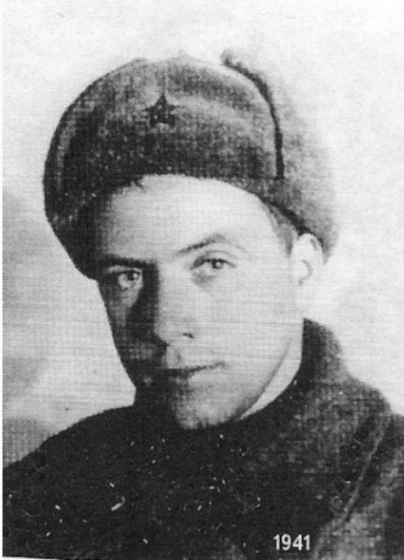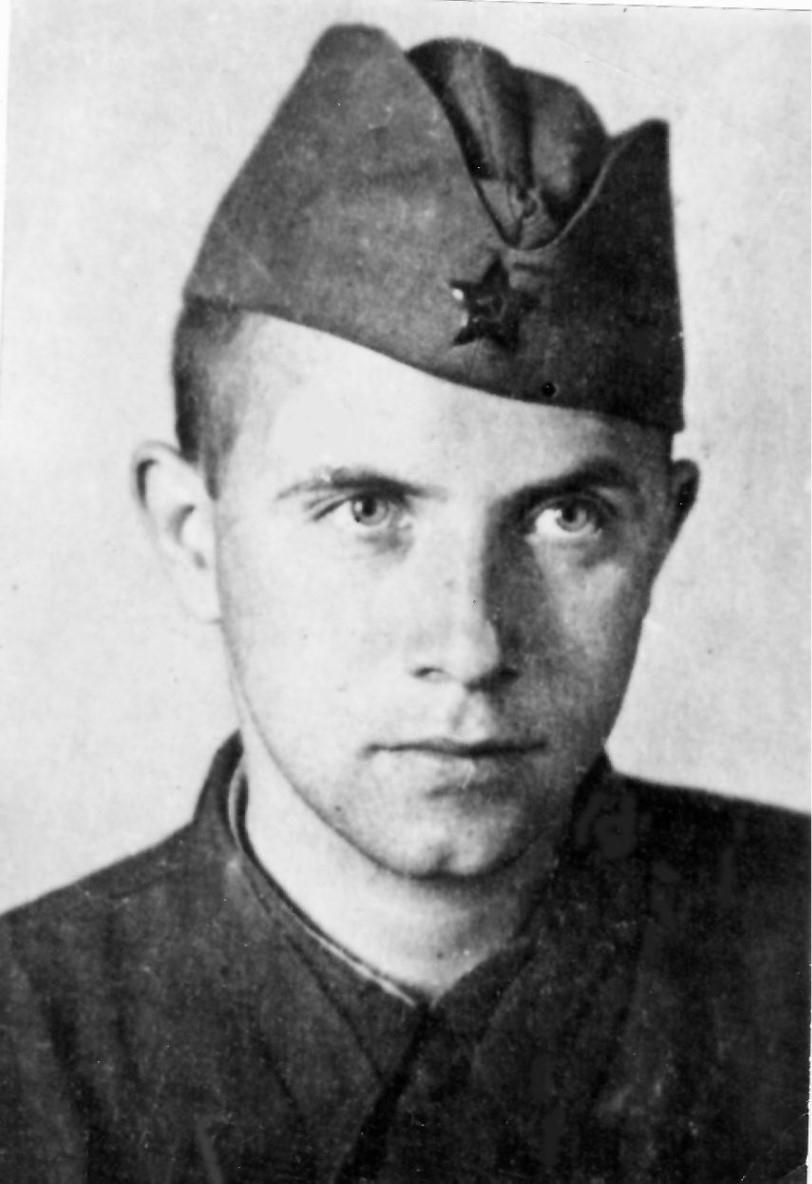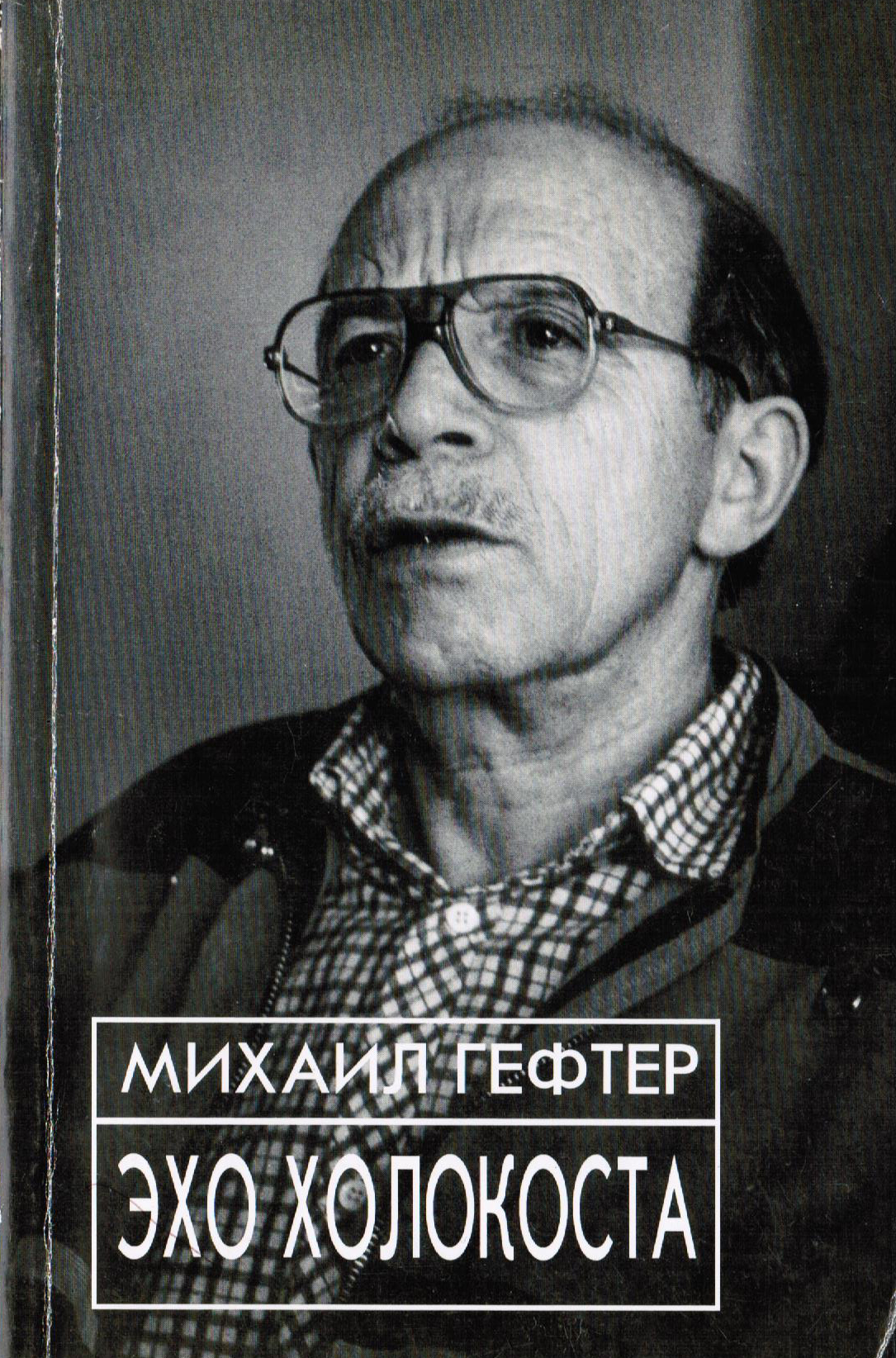Mikhail Gefter was born in 1918 in Simferopol, Crimea, in a Jewish family. He grew up in that city and finished high school there. Since early childhood, he had heard his grandmother's tales about the Odessa Pogrom of 1905 and the Jewish self-defense efforts.
In 1936, Mikhail moved to Moscow and began to attend the Faculty of History of Moscow University.
At the time of the Nazi invasion of the Soviet Union in June 1941, Mikhail was just one exam away from graduating. Thanks to his remarkable leadership qualities and oratorical gifts, Gefter had won renown among his fellow students. Having decided to enlist in the army, he convinced many of them to join him. Several days after the outbreak of war, a train loaded with history students (of various years of study) was dispatched to Smolensk Oblast to dig anti-tank trenches. Gefter became Komsomol leader (komsorg) of the student battalion. He had to procure food, maintain discipline – and, most importantly, keep up the students' flagging morale.
In late August 1941,the second-, third-, and fourth-year students were recalled to Moscow, while their first- and fifth-year counterparts remained on active duty. Most of the latter were eventually surrounded by the enemy and killed. By a stroke of luck, Mikhail Gefter and his comrades were able to break out of the encirclement and rejoin the Red Army. He was soon sent to the front lines as a private. In early 1942, Mikhail Gefter took part in the bloody Battle of Rzhev. That clash dragged on for over a year, resulting in the retreat of the Wehrmacht. In these battles, Mikhail Gefter was gravely wounded and shell-shocked twice, and this led to his discharge from the army. For his contribution to the war effort, Gefter was awarded the Order of Glory, 3rd Class, and several medals. His mother and cousin died in the Holocaust in Simferopol. Nevertheless, he regarded his service in the Red Army as the outstanding event of that period in his life. He would later write: "I belong to the 'lucky' butchered generation. Most of its members fell in 1941 and 1942." (Mikhail Gefter, The Echo of the Holocaust and the Russian-Jewish Question. Moscow, 1995. p. 178).
Having been diagnosed with a second-degree disability, Mikhail Gefter returned to Moscow. He later became a postgraduate student, and was awarded a candidate's degree in 1950. He went on to work as a research fellow at the Institute of History of the Soviet Academy of Sciences. Gefter was untouched by Stalinist antisemitism, although he would later admit: "The 1950s. My inner cosmopolitan has been aroused and awakened… I am a conscious Russian…". He goes on to say: "That unknown and incomprehensible thing known as 'Russianness' made me ponder a subject that might provisionally be termed 'Jewishness'" (Mikhail Gefter, The Echo of the Holocaust and the Russian-Jewish Question. Moscow, 1995. pp. 7-8). In the historical context, he associated himself with cosmopolitanism.
After the death of Joseph Stalin in 1953, the space of freedom in the country began to expand. Mikhail Gefter was now able to actively pursue his scholarly interests. He took part in conceptualizing and writing the multi-volume World History series. In 1964, he organized and headed a group of historians, philosophers, and culture scholars who studied questions of methodology. By 1970, Gefter had about 100 publications to his name. However, following the publication of his book Historical Science and Some Lacunae of Modernity (1969), the section that he had established at the Institute of History was shut down because of the incompatibility between his work and the Party ideology. His works ceased to be published. Having been denied the ability to engage in scholarship and research, he quit the Institute of the Academy of Sciences, going into early retirement. However, he did not stop writing, even though he had no hope of seeing his works in print.
In the mid-1970s, Mikhail Gefter joined the dissident movement – although, in the words of a KGB general who monitored that movement, Gefter "was not a dissident, but a dissenter" (Mikhail Gefter, The Echo of the Holocaust and the Russian-Jewish Question. Moscow, 1995. p. 178).
In 1977, Gefter was among the founders of the samizdat magazine Poiski, and he regularly contributed articles to it over the next four years. As a result, the KGB searched his apartment in 1979, confiscating numerous books and manuscripts. In 1985, under the rule of Gorbachev, he renounced his membership in the Communist Party. In early 1986, he wrote a letter to Gorbachev, trying to make the Soviet leader see the urgent need to release all the dissidents from the prisons and camps.
Mikhail Gefter resumed his full participation in public life during the years of Gorbachev's perestroika, and his works were once again published. In the late 1980s and early 1990s, he began to take an interest in the Jewish theme, paying particular attention to antisemitism and the Holocaust. He hypothesized that antisemitism was closely intertwined with Russian history and culture.
In June 1992, Mikhail Gefter became president of the scholarly-educational "Holocaust" Center.
In 1993, Gefter was a member of the Advisory-Analytical Council of the President of Russia, but he resigned from it following the October Coup, which had been caused by the Russian Constitutional Crisis.
Mikhail Gefter died in 1995 in Moscow.









